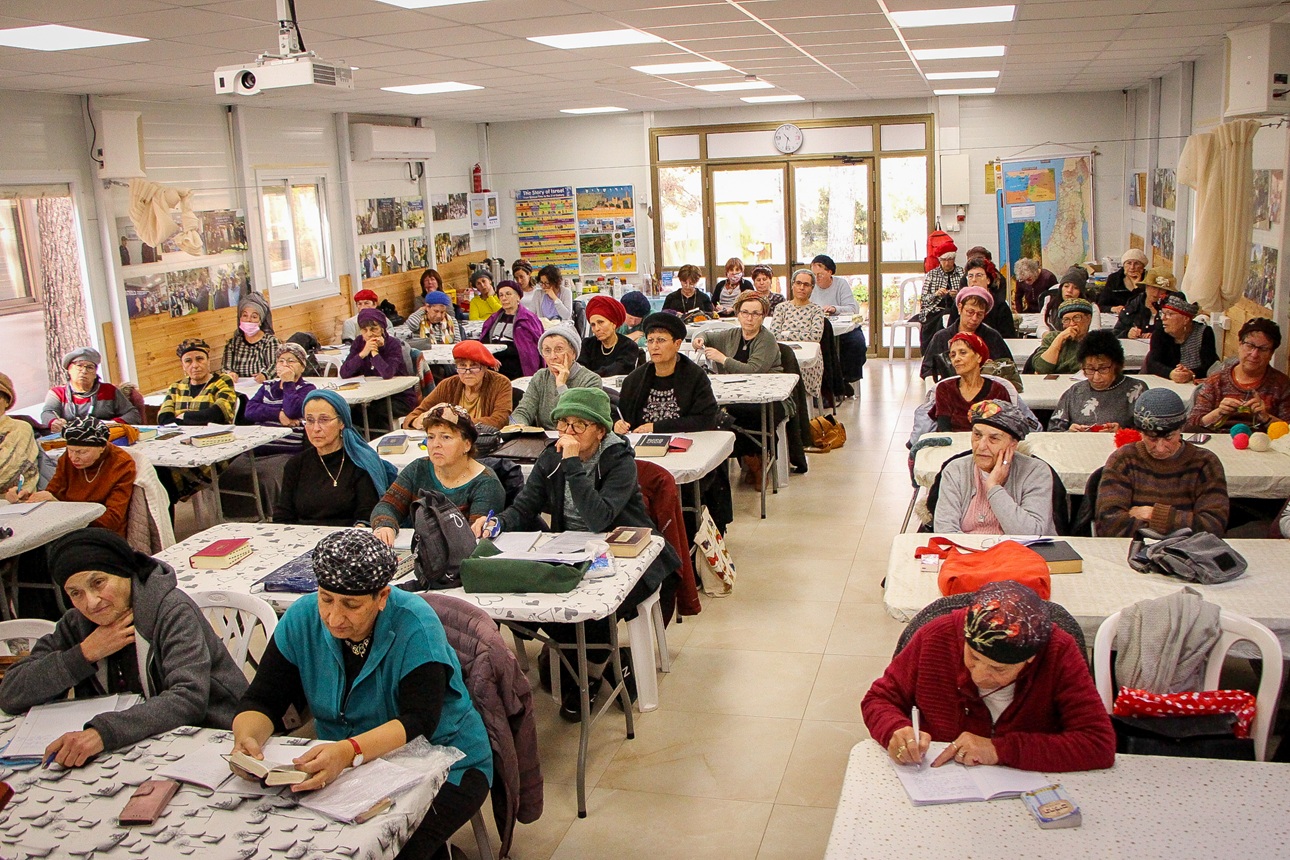A Small but Insufficient Victory for Female Torah Scholars
A recent Supreme Court decision rules that the Chief Rabbinate must allow women to take the Halakhic exams it administers for the purpose of ordaining rabbis. While this does not mean they will be ordained as rabbis, this is good news for women in their struggle for the value of their Torah study to be recognized.

Photo by Gershon Elinson/Flash90
The Supreme Court recently ruled that the Chief Rabbinate must allow women to take the halakhic exams it administers for the purpose of ordaining rabbis. Of course, this does not mean that the Chief Rabbinate is now obligated to ordain women as rabbis, but rather that it is required to allow women to take the exams that constitute one of the conditions for certification.
It should be noted that the act of simply taking these exams has significance in itself: First, the certificate awarded to those who pass is considered, in some cases, to be equivalent to an academic degree for the purpose of employment in the public sector. Second, in most cases (as indicated by the petition before the Court), the exams are administered without the examinee eventually receiving rabbinical ordination, but rather in order to grant institutional recognition of their level of Torah education, which is also used for admission to positions in private educational or community institutions.
This is why this ruling represents good news for women in their struggle for the value of their Torah study to be recognized. Many ultra-Orthodox men enjoy an almost automatic status of “Torah students” due to their gender and sectoral affiliation, without any real oversight over their study hours or academic achievements. They then use this status to dodge military service and participation in the workforce. Female Torah scholars, on the other hand, are forced to fight for recognition of their achievements. While the struggle being waged by the Haredi political parties to preserve a reality where Torah study is used as an excuse and for entitlement of a particular sector, the women who petitioned the Court are struggling to broaden the reach of Torah studies, and make it accessible to all segments of Jewish society,
The Court's ruling provides legal validity for what has been clear for years. While there have always been women engaged in Torah study, the number of women studying in religious institutions such as midrashot (post high school seminaries for women) or women’s kollels increases every year. This has also led to an increasing number of religious women who are serving in religious and halakhic leadership positions—for example, in community rabbinical roles, as halakhic jurists, and as heads of midrashot.
This trend is evident in all religious sub-sectors of Israeli society, yet the Chief Rabbinate refuses to recognize it. Implementing the High Court ruling will not resolve any time soon the current problematic situation according to which women cannot be appointed to public rabbinical positions. Though they may now meet the prerequisites, these official positions will remain closed to them. According to data from IDI’s Biennial Statistical Report on Religion and State in Israel, the state employs around 490 men in public rabbinical positions. Women, even after the High Court ruling, cannot even apply for them.
The same report also reveals that public trust in the Chief Rabbinate is very low among Jewish Israelis, at less than a third, and this may be due in part to its attitude toward women. Added to this is the fact that women are conspicuously absent from the Chief Rabbinate itself, a state institution that also has a representative role. Their absence affects not only the status of women, but also the status of the Rabbinate. A public body in which women cannot hold certain roles is invalid according to the principles of democracy and not to be taken seriously.
In an article titled “The Honor of the Rabbinate,” Rabbi Kook, the first Ashkenazi Chief Rabbi of Israel, wrote: “The Rabbinate must have a constant mutual connection with every force at work in the Land of Israel, by constantly striving to bring people nearer [to Judaism].” Rabbi Kook’s vision for the Chief Rabbinate, as representing the institution of the rabbinate as a whole, was for it to be relevant to the entire nation, connected to the various different elements of the population and linking them to one another. Rabbi Kook knew that this would be important for the honor of the Chief Rabbinate, and thus for the honor of the Torah. A rabbinate that is not connected to its people is not respected by its people.
The Court's ruling reminds us of the great gap between this vision and current realities. Presumably, the implementation of the vision is still a long way off, and the Chief Rabbinate will strive to make it difficult. But looking back at the 104 years since it was founded, the ruling may begin to alter the crooked path that the Rabbinate has taken so far. The more it is able to recognize what the public has known for years—that there is such a thing as female Torah scholars—the more it will take a small step toward the public, and toward Rabbi Kook’s vision.
Ayala Goldberg is a researcher in the Religion and State Program at the Israel Democracy Institute and a contributor to a research project on the Chief Rabbinate.
This article was published in the Jerusalem Post.
